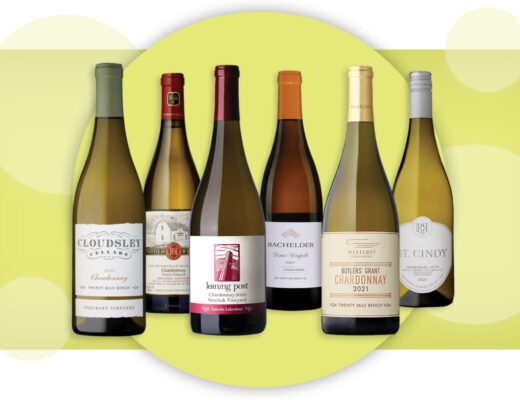It’s no surprise that since the beginning of the COVID-19 pandemic, alcohol consumption in Ontario has gone up. The rise of alcohol sales goes hand in hand with stress and anxiety levels, along with closures and social gathering limits. But what does this mean for our developing wine region?
Since March 2020, when the pandemic began, we’ve seen an influx of alcohol sales as people were forced to stay home, which in turn, prompted online sales to skyrocket. Between March 2020 and March 2021, winery retail stores in Ontario have seen a 20.4 percent increase in onsite and offsite sales – a welcomed financial boost considering the dramatic decrease of foot traffic and restaurant sales.
Read Also: Congratulations to Ontario’s Top 20 Wineries of 2021
The on-again off-again restaurant closures, which is the second highest channel for wine industry sales, has severely impacted winery revenues within the last two years.
Asked about the most recent lockdown, Richard Linley, President of Ontario Craft Wineries (OCW), stated “I do see this [latest] lockdown as a tipping point. Winter is often a slower time of the year for wineries. However, if restrictions remain past the spring, then the industry will face hard decisions including some winery closures.”
“The pandemic has accelerated change in our industry and in consumer buying patterns.” – Richard Linley, Ontario Craft Wineries
Linley explains the urgency for the government to step in, saying that by “having the government eliminate the 6.1 percent basic retail tax at onsite winery retail stores would make a huge difference and provide timely relief…” A tax that Ontario Craft Wineries is working diligently to remove. “Eliminating the tax is a chance to rebuild our sector for tomorrow after two years of uncertainty caused by the pandemic.”
In spring of 2021 – upon the one-year mark of the pandemic – the OCW successfully pushed the Ontario government to supply wineries and cideries with a $10M allocation for lost cellar door sales within the 2020 fiscal year. It is yet to be determined what the government’s next steps will be for the 2021 fiscal year, but the OCW is hopeful for either another grant or the elimination of the 6.1 percent tax.

Winery owners and winemakers have embraced the pandemic restrictions as an opportunity to connect more personally with their consumers.
If there is a silver lining to all of this, it has clearly been the “support local” mantra from Ontario consumers. Every bottle of VQA wine sold creates approximately $100 of economic impact. With 11,000 jobs in the VQA business (18,000 if you include International Domestic Blends), and managing staffing levels based on revenue income, it’s never been more important to support what is made in our own back yard.
“The pandemic has accelerated change in our industry and in consumer buying patterns,” says Linley. “Online consumer habits have progressed quickly, and we appreciate the steadfast loyalty from Canadians during these difficult times. As an industry comprised of mostly small businesses, it’s never been more important to support local, buy local.”
While many Ontario wineries continue to pivot from tasting room experiences to strictly online sales and customer outreach, owners and winemakers are embracing it as an opportunity to connect more personally with their consumers. As tasting rooms can make revenues hard to calculate for wineries (glass breakages, overpours, staffing, etc.), wineries are appreciating this new, smoother way of making sales. Furthermore, with the closed cellar doors, wineries can build their reputation through intimate outdoor customer experiences, with many inviting customers to book one-on-one time at the winery with the winemaker and participate in a guided tasting. This model reflects those found in Europe, and with the Canadian industry still budding, it’s a great platform to engage in and give consumers a real grasp of the wines being produced locally.
Overall, Richard Linley is “optimistic that wineries, with proper government support, will be in a better place” coming out of the latest lockdown. It might just be the tipping point we need to propel the industry to a better place.
-Leah Spooner is a Contributing Editor for VineRoutes
![]()













